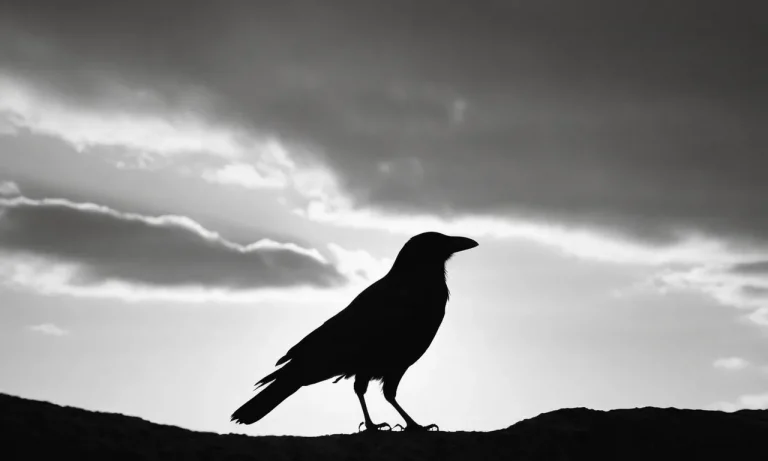Alcoholic beverages have been an integral part of human civilization for thousands of years. Their mystical and spiritual associations date back to ancient times. The term “spirits” itself holds intriguing connotations that provide insight into humanity’s complex relationship with alcohol.
If you’re short on time, here’s a quick answer to why alcohol is called spirits: Alcohol got the name “spirits” because early alchemists thought alcohol had metaphysical and supernatural properties and could affect human consciousness or carry the “spirit” of certain ingredients.
The Etymological Origins of “Spirits”
Connection to Alchemy and Esoteric Beliefs
The term “spirits” originated from medieval alchemy and occultism. Alchemists thought that alcohol was created during fermentation by the distillation of spiritual vapors. They believed alcohol had special properties and could alter consciousness.
This mystical view of alcohol connected it to supernatural realms.
Reference to Supernatural Beings
In the 16th century, the word “spirit” also referred to supernatural beings like ghosts, angels, demons, or paranormal entities believed to influence the material world. Calling alcohol “spirits” associated drinking with connecting to otherworldly spirits or having one’s behavior influenced by these supernatural forces.
Some occult rituals used alcohol to facilitate contacting spirits. Drinking was thought to open pathways between the mundane and spiritual planes. People believed that consuming alcohol could allow otherworldly beings to possess or channel wisdom through the drinker.
Indicating High Alcohol Content
The “spirit” in alcohol also referred to its invigorating and volatile nature. Distilled liquors had a high alcohol content compared to fermented beverages like beer or wine. They seemed animated and alive – thus the descriptor “spirits.”
Strong alcohol content allowed dried herbs to be dissolved for medicinal tinctures, further linking the term to alcohol’s transformative essence.
Calling distilled alcohol “spirits” distinguished strong drink from weaker alternatives. It suggested vivacity, spunkiness, liveliness – qualities associated with powerful supernatural forces. This set spirits apart as special, desirable, and something to be wary of, much like the paranormal entities also denoted by the name.
| Meaning | Example Phrases |
|---|---|
| Connection to mystical realms | “Drink unlocks the spirit world” |
| Reference to supernatural beings | “Rum gives men liquid spirits” |
| Indicating potency | “Gin’s clear spirit burns going down” |
Historical and Cultural Spiritual Associations
Role in Religious Rituals
Alcoholic beverages like wine and beer have played an important role in religious rituals for thousands of years across many cultures. Wine is used symbolically in Christian communion services, for example, representing the blood of Christ.
Alcohol has also been used in rituals honoring gods and goddesses in ancient Greek, Roman, Norse, Egyptian, and other polytheistic religions as part of offerings and libations.
Symbolizing Life Force or Divine Essence
The intoxicating effect of alcoholic drinks led some cultures to view it as containing a spiritual or divine essence. For example, in ancient Egypt beer and wine were seen as gifts from or manifestations of Osiris, the god of fertility, life, and resurrection.
Across cultures, the Latin word “spiritus” meaning breath, life force, or soul was extended to apply to distilled liquors due to their effect of lifting moods andinspiring feelings of vitality.
Beliefs in Mystical Properties
Some traditional folk beliefs ascribed magical or supernatural powers to alcohol. Wine features in Jewish mysticism, associated with joy and the divine presence. Norse myths tell of mead having the power to inspire poetry.
In European folk traditions, specific drinks became part of popular spells, charms, fortune telling, and other mystical practices. So the idea of alcohol containing or conferring a special “spirit” became widespread over history.
The diverse spiritual roles alcohol has played across cultures over millennia contributed to it poetically being described as “spirits” in English. This reflects a long human fascination with the mystical side of intoxication.
Of course, while moderate drinking has cultural and social benefits, alcohol abuse causes tremendous harm. Understanding its history helps put both sides of this complex substance into perspective.
The Mind-Altering Qualities of Alcohol
Effects on Consciousness and Cognition
Alcohol is classed as a depressant drug because it has a tranquilizing effect on the central nervous system[1]. As blood alcohol levels rise, normal brain function becomes increasingly impaired. Reaction times slow, emotions intensify, and intellectual capacity declines.
At very high levels, alcohol induces a intoxicated state involving sedation, loss of motor control, and sometimes loss of consciousness.
Research shows that moderate to high doses of alcohol negatively impact a variety of mental functions including:
- Memory and learning
- Problem solving
- Verbal skills
- Perception and sensory processing
The initial euphoria felt when drinking is partially due to altered dopamine levels in the brain’s reward centers[2]. But as inebriation increases, overall brain activity is substantially depressed. Excessive, long-term alcohol misuse can even lead to permanent neurological damage.
Transcendent Experiences
In many cultures and spiritual traditions, alcohol has been used purposefully to induce elevated or visionary states of consciousness. Ritual practices incorporate alcohol consumption to loosen psychic energies and expand awareness beyond ordinary modes of perception.
By reducing cognitive functions centered in the neocortex, alcohol curtails the rational filters that constrain our experience of reality. This allows more connections with our intuitive right brain and with the deeper recesses of the unconscious mind.
With alcohol dampening the voice of the ego, some find it easier to access more cosmic or transcendental aspects of self. Though not all alcohol-fueled experiences are pleasant or meaningful.
Out-of-Body Sensations
At very high blood concentrations, alcohol can create distortions so extreme that one’s sense of personal identity is disrupted. The feeling of being separate from your own body is medically classified as alcohol-induced depersonalization/derealization disorder.
This frightening out-of-body experience (OBE) differs from the blissful transcendence sometimes achieved at lower intoxication levels. But both originate from alcohol radically altering awareness and loosening one’s usual identification with the physical self or egoic personality.
Modern Spiritual Perspectives on Alcohol
Dionysian Views
In Greek mythology, Dionysus was the god of wine, grape harvest, fertility, and religious ecstasy. Followers of Dionysus practiced ritual madness and intoxication as ways to achieve heightened spirituality and closeness with the god.
Some modern pagans and followers of ecstatic traditions see alcohol as a gateway to altered states where spiritual insight can be gained. However, most advocate responsible and moderate drinking, rather than excess.
As one modern Dionysian practitioner notes, “The point of intoxication in these rites is to loosen inhibitions and see through the veil, not to lose reason or control.”
Alcohol as Forbidden Fruit
Some Christian temperance movements have portrayed alcohol as the “forbidden fruit” of the Garden of Eden, suggesting that as the fruit of the Tree of Knowledge brought sin into the world, so too can alcohol cloud judgement and impair reasoning.
However, others argue that the forbidden fruit narrative is allegorical, and that rather than absolutely forbidding alcohol, many Biblical stories actually portray its moderate and responsible use. Jesus’ first public miracle turned water into wine at a wedding, for example.
So while the forbidden fruit connection remains for some, modern perspectives among Christians vary widely when it comes to alcohol use.
Responsible Drinking and Moderation
Regardless of one’s spiritual or religious views, most faith traditions advocate temperance, self-control, and personal responsibility when it comes to drinking. The moral concept of not harming oneself or others often comes into play.
Many modern spiritual teachers, even within traditions that historically used intoxicants, now focus on mindful drinking – being fully present and aware of one’s state while using alcohol judiciously.
Resources are now available to support more mindful and moderate enjoyment of alcohol rather than excess. And new research shows health as well as social and spiritual benefits to low or moderate drinking for those who choose to imbibe.
| Perspective | View on Alcohol Use |
|---|---|
| Dionysian | Can be a gateway to spiritual insight when used moderately in rituals |
| Some Christian Views | Forbidden or sinful, impairs judgement |
| Responsible Drinking | Focus on moderation, mindfulness, temperance regardless of spirituality |
So modern spiritual perspectives on alcohol vary greatly today. But an emphasis on moderation, consciousness, and personal responsibility shine through in many faiths and spiritual writings on the subject.
What matters most is “walking your own path wisely” as the poet Rumi said – advice just as applicable today as in ancient times.
Conclusion
In closing, the long spiritual history behind alcohol provides insight into humanity’s fascination with its mystical qualities. Early beliefs in supernatural forces and alchemical principles contributed to alcohol’s enduring “spirits” moniker.
While excessive drinking carries risks, moderate enjoyment allows for transcendent experiences, if only temporary.






